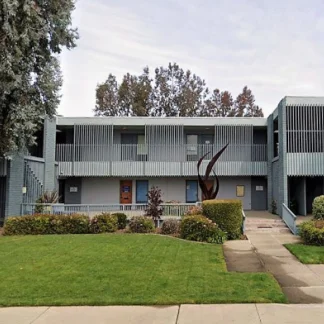La Selva Group - California Avenue
La Selva Group, in Palo Alto, California, provides comprehensive mental health a...
Located in Mountain View, California, the OHS Occupational Health Services DUI Program focuses on providing outpatient DUI classes and education. The program is available to individuals who have been convicted of driving under the influence.
The outpatient program focuses on a person-centered, legally abiding approach to treating individuals who have been convicted of driving under the influence. Clients will engage at for the duration necessary to complete their sentenced DUI class time ordered by the court. The more violations a person has, the more DUI class education they will need to complete. Each person is responsible for completing their program in the time frame they are allotted to avoid additional charges or penalties. If a higher level of care is needed to treat a person’s addiction, they may be referred to an alcohol or drug rehab center that can provide acute addiction treatment.
OHS Occupational Health Services DUI Program does not accept insurance. Individuals who want to use their insurance to pay for additional treatment services may reach out to their insurance provider to learn more about their coverage. This is important to do because out-of-network benefits may vary from plan to plan.
Contact us for more information: (650) 988-4825

Connect with OHS - Occupational Health Services - DUI Program by calling their admissions team directly.
(650) 988-4825 Website Get DirectionsState Licenses are permits issued by government agencies that allow rehab organizations to conduct business legally within a certain geographical area. Typically, the kind of program a rehab facility offers, along with its physical location, determines which licenses are required to operate legally.
State License: California
Cognitive Behavioral Therapy (CBT) is a therapy modality that focuses on the relationship between one's thoughts, feelings, and behaviors. It is used to establish and allow for healthy responses to thoughts and feelings (instead of unhealthy responses, like using drugs or alcohol). CBT has been proven effective for recovering addicts of all kinds, and is used to strengthen a patient's own self-awareness and ability to self-regulate. CBT allows individuals to monitor their own emotional state, become more adept at communicating with others, and manage stress without needing to engage in substance abuse.
Group therapy is any therapeutic work that happens in a group (not one-on-one). There are a number of different group therapy modalities, including support groups, experiential therapy, psycho-education, and more. Group therapy involves treatment as well as processing interaction between group members.
In individual therapy, a patient meets one-on-one with a trained psychologist or counselor. Therapy is a pivotal part of effective substance abuse treatment, as it often covers root causes of addiction, including challenges faced by the patient in their social, family, and work/school life.
Motivational Interviewing (MI) is a clinical approach to helping people with substance abuse issues and other conditions shift behavior in positive ways. It is more goal-oriented than traditional psychotherapy, as MI counselors directly attempt to get clients to consider making behavioral change (rather than wait for them to come to conclusions themselves). Its primary purpose is to resolve ambivalence and help clients become able to make healthy choices freely.
Group therapy is any therapeutic work that happens in a group (not one-on-one). There are a number of different group therapy modalities, including support groups, experiential therapy, psycho-education, and more. Group therapy involves treatment as well as processing interaction between group members.
In individual therapy, a patient meets one-on-one with a trained psychologist or counselor. Therapy is a pivotal part of effective substance abuse treatment, as it often covers root causes of addiction, including challenges faced by the patient in their social, family, and work/school life.
Motivational Interviewing (MI) is a clinical approach to helping people with substance abuse issues and other conditions shift behavior in positive ways. It is more goal-oriented than traditional psychotherapy, as MI counselors directly attempt to get clients to consider making behavioral change (rather than wait for them to come to conclusions themselves). Its primary purpose is to resolve ambivalence and help clients become able to make healthy choices freely.
In individual therapy, a patient meets one-on-one with a trained psychologist or counselor. Therapy is a pivotal part of effective substance abuse treatment, as it often covers root causes of addiction, including challenges faced by the patient in their social, family, and work/school life.
Motivational Interviewing (MI) is a clinical approach to helping people with substance abuse issues and other conditions shift behavior in positive ways. It is more goal-oriented than traditional psychotherapy, as MI counselors directly attempt to get clients to consider making behavioral change (rather than wait for them to come to conclusions themselves). Its primary purpose is to resolve ambivalence and help clients become able to make healthy choices freely.
Motivational Interviewing (MI) is a clinical approach to helping people with substance abuse issues and other conditions shift behavior in positive ways. It is more goal-oriented than traditional psychotherapy, as MI counselors directly attempt to get clients to consider making behavioral change (rather than wait for them to come to conclusions themselves). Its primary purpose is to resolve ambivalence and help clients become able to make healthy choices freely.
La Selva Group, in Palo Alto, California, provides comprehensive mental health a...
Pathway Society is a nonprofit substance abuse treatment program in Santa Clara,...
North County Treatment and Recovery Center is a drug rehab located in Palo Alto,...
JFK University – Counseling Center is a private rehab located in Sunnyvale, Cali...